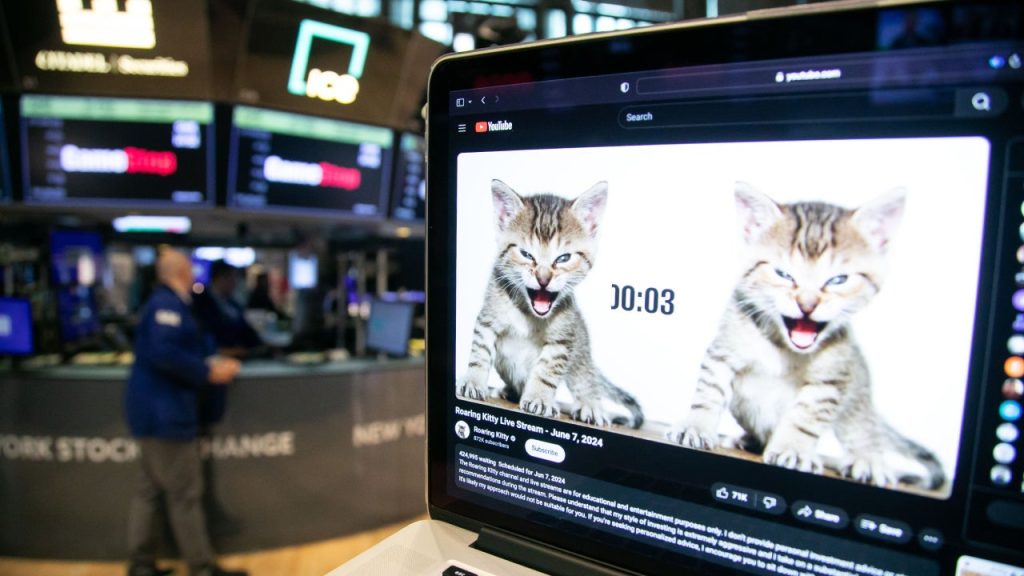Shares of online pet food retailer Chewy popped on Monday when noted investor Keith Gill, alias “Roaring Kitty,” revealed that he had purchased 9 million shares in the pet-supply retailer. The position was disclosed in an SEC filing on July 1, noting that Gill held about 6.6 percent of Chewy’s shares.
Gill’s purchase price was not stated in the filing, but the stake is worth around $248 million with Chewy stock at $27.50. In the prior week, the stock traded mostly between $26 and $30 per share, with a notable spike into the mid-$30s on Thursday, around the time the investor posted a cartoon image of a dog on his X account.
Gill was the most vocal cheerleader behind the social media frenzy that helped push GameStop “to the moon” back in late 2020 and early 2021.
Roaring Kitty purchases another meme stock
Gill’s purchase of Chewy is a follow-up to his recently disclosed purchase of troubled retailer GameStop, a so-called meme stock that catches the fancy of traders via social media. At one point, Gill revealed a position of stock and options in the video game retailer, sending that stock soaring. The company took advantage of the price rise to issue new shares of its stock.
Both Chewy and GameStop are connected to executive Ryan Cohen. Cohen founded the pet company and stepped into the role of GameStop CEO in September 2023.
It’s not fully clear whether Gill’s newly revealed position in Chewy comes in addition to his previously disclosed stake in GameStop, which was worth more than $180 million when he announced it in early June. The stock moved quickly higher when his ownership was confirmed.
With the price of GameStop falling from its high above $45 in recent weeks, however, it now sits around the estimated break-even price on Gill’s GameStop trade of about $23.
Gill has not publicized an investment thesis for Chewy, as he did for GameStop during a YouTube livestream in June. But in that livestream, Gill noted that he liked the stock because of Cohen’s leadership and that he expected Cohen to lead the retailer to a turnaround.
Meme stocks prove to be extremely risky bets for investors
The volatility of GameStop stock is a case study of why traders love meme stocks so much and also why they’re so dangerous for those looking to build long-term wealth.
The volatility of meme stocks – supported by social media chatter that boosts interest – allows deft traders to jump into the market and exploit price spikes, scalping huge profits quickly. The chatter can quickly become self-sustaining, at least for a while, as individual traders, algo traders and artificial intelligence (aka AI) identify where attention and money are flowing and then purchase stock and options.
That volatility cuts both ways, however. For every winner who sold GameStop at $45 per share in June, there’s someone who bought that share expecting it to move higher. Now with the stock trading around half that price just weeks later, those investors may be sitting on massive losses.
So, those looking to make a quick buck on meme stocks may quickly find out that they’re the ones being fleeced. With individuals up against high-powered computer traders, it’s a tough place to make a buck consistently, and active traders tend to underperform passive long-term investors.
Editorial Disclaimer: All investors are advised to conduct their own independent research into investment strategies before making an investment decision. In addition, investors are advised that past investment product performance is no guarantee of future price appreciation.
Read the full article here

